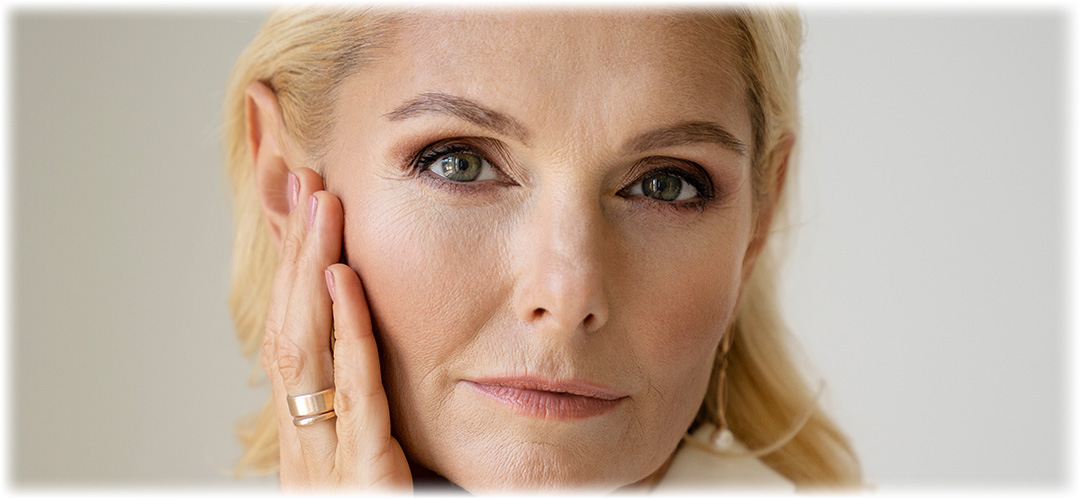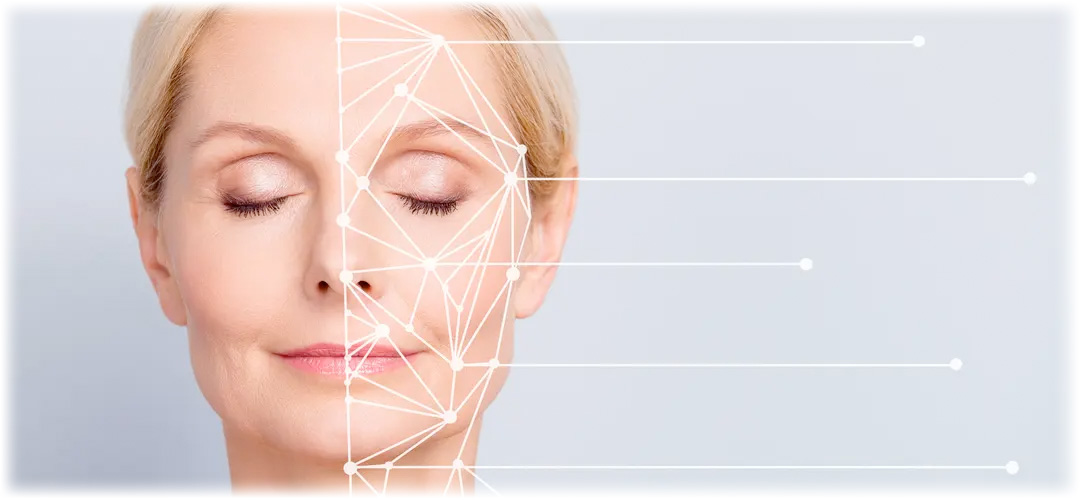
As we age, our ability to produce collagen declines and our existing collagen starts to break down.
It’s estimated that by the age of 40, we will have lost 20% of our existing collagen. Low levels of collagen can lead to weak immune systems and digestive issues. However, age is not the only factor that reduces our collagen levels. Other elements that can deplete our collagen levels include sun exposure, stress, pollution and lack of antioxidants.
Collagen is found throughout the body but most prominently in the skin, bones, muscles and tendons. It functions as a sort of interior ‘molecular scaffolding’ to provide structure and keep you strong.
A collagen supplement is known as exogenous – it comes from outside the body rather than being naturally made. By contrast, endogenous collagen is synthesised by the body. By taking exogenous collagen supplements, you assist the body’s natural supplies.
As you get older, the body becomes less able to produce collagen. Since it’s such a significant part of your skin’s structure, this can be detrimental to its appearance and health. This article explores what collagen is and why collagen supplements could help your skin to look younger again.

• What is Collagen?
The name collagen comes from the Greek kólla (κόλλα), meaning glue or paste. It was so named because it’s the ‘glue’ that holds the body together. Historically, it was used to make glues and pastes and is still used in many things today, including the strings on musical instruments.
Collagen is the most common protein found in the human body, accounting for about 1/3 of it. There are 16 different types of collagen - the main ones are Type I, Type II and Type III. Usually, you find collagen proteins stacked together in long, thin fibrils, making them strong and flexible. Type 1 collagen, especially, forms fibrils that can stretch and easily hold their shape. They are, proportionally, stronger than steel.
• What does Collagen do?
Collagen usually provides structure and strength to your body, as mentioned above. Different types of collagen play slightly different roles. Type I collagen, densely packed fibrils, provide the structure for your skin, bones, tendons, ligaments, and many more body parts. Type II collagen is more loosely packed and found in the elastic cartilage surrounding your joints. Type III collagen can be found supporting muscles, arteries and organs.
The body produces collagen from procollagen by combining glycine and proline, two amino acids. You can get these amino acids from standard protein-heavy foods such as meat, fish, dairy products, egg whites and bone broth. Some people also take specific supplements to increase the levels of glycine and proline in their bodies.
The reaction is assisted by Vitamin C and copper, most notably. You can increase your Vitamin C levels by eating plenty of fruit and vegetables or, again, taking a supplement. Copper can be found in cashews, lentils, organ meats and cocoa powder. To assist in collagen production, make sure you consume the recommended daily amount of high-quality protein along with sufficient amounts of Vitamin C.
• How does Collagen support general skin health?
Collagen is found in the dermis, which is the middle layer of skin. It forms part of a fibrous network of cells known as fibroblasts, which allows new cells to grow. Part of its job is restoring and replacing dead skin cells.
As collagen production begins to wane (due to age or any of the causes mentioned below), the skin starts losing its structural integrity, leading to wrinkles. Replacing the collagen you lose helps to prolong this process, keeping your skin looking younger for longer.
• When does Collagen production get affected?
Age is the most significant factor affecting collagen production. As we get older, our bodies gradually start to slow down. The parts of our bodies responsible for collagen production become less efficient, meaning there’s less of it in our systems every year. There’s no shame in it at all – it happens to everyone, of course. By the age of 60, most people will have experienced a significant drop in their collagen levels.
Several other factors affect collagen production and have an impact on your skin and its appearance, including:
- Menopause – Most women experience a significant drop in collagen synthesis after menopause.
- Lupus and other autoimmune disorders – These can physically damage the collagen in your system.
- Too much sugar – Collagen can’t repair itself as effectively if you’ve got too much sugar in your system.
- Smoking – Smoking leads to reduced collagen production, leading to wrinkles and unhealthy-looking skin.
- Excessive UV exposure – Spending too much time in the sun also reduces collagen production.
- Stress – keeping stress levels down helps to maintain high collagen levels.
There’s not much that can be done to prevent ageing, menopause or Lupus. However, collagen supplements and eating the necessary foods (those high in Vitamin C and protein) can help fight the inevitable side effects. To increase collagen production levels in the body, you can avoid eating too many sugars, smoking, or getting sunburnt. If possible, you could take steps to reduce your stress levels, too.
• Will Collagen supplements make my skin look younger?
Only a few clinical studies have been conducted to test the effectiveness of collagen supplements. However, many of them show promise, especially in the areas of skin appearance, arthritis and muscle mass.
At Lily & Loaf, our Collagen Plus supplement combines Marine Collagen (a Type I collagen), Vitamin C, hyaluronic acid, Hebridean seaweed, and biotin. Together, these ingredients maximise the effect the collagen has on your system, leaving you with younger-looking skin.
Check out these links to find out more:
Disclaimer:
Information and other content provided in Lily & Loaf blogs should not be construed as medical advice and should not be considered a substitute for professional medical expertise. If you have any medical concerns, you should consult with your health care provider.



